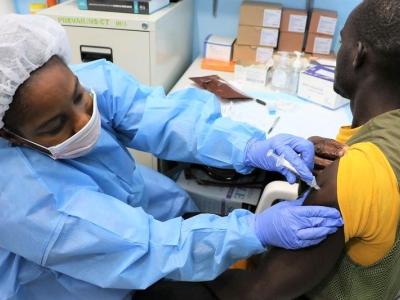A review today from the US Centers for Disease Control and Prevention (CDC) found that 17 states exceeded the agency's Ebola screening and monitoring policies, officials noted in Morbidity and Mortality Weekly Report (MMWR).
Last October the hospitalization and monitoring of a nurse who had returned from working in Sierra Leone led New York, New Jersey, and other states to enact mandatory quarantine policies for some West African travelers, especially those who had contact with Ebola patients.
The actions led to a more fine-tuning of federal guidelines. On Oct 27, 2014, CDC guidance was updated to establish new risk categories, recommend public health actions for the various risk categories, and add response steps for specific groups and settings. But, unlike the New York and New Jersey policies, the CDC did not recommend mandatory quarantine.
The actions of some states to go beyond CDC guidelines sparked controversy, coming just weeks ahead of November elections and prompting warnings that the stricter policies could pose an obstacle for recruiting healthcare workers for the outbreak region, which was one of the greatest needs at the time.
Eastern states more likely to vary
In light of the inconsistencies and concerns, the CDC's Public Health Law Program looked at the jurisdictional differences, based on publicly available screening, monitoring, and movement policies for states and territories and compared them with CDC guidance.
Researchers found that 17 states and the District of Columbia had policies that were more restrictive than the CDC's, 35 had policies that were equivalent to the agency's, no states or territory policies were less stringent, 1 territory had an unclear policy, and 2 territories didn't have publicly available ones.
Most of the states with stricter policies are located in the eastern half of the United States, the report noted.
The authors said that although states have the right to set their own policies, differences can confuse the public and have the potential to hamper the flow of volunteers to the outbreak region. The group added that states can minimize the confusion by making their policies clear and easily accessible.
See also:
Oct 16 MMWR report

















